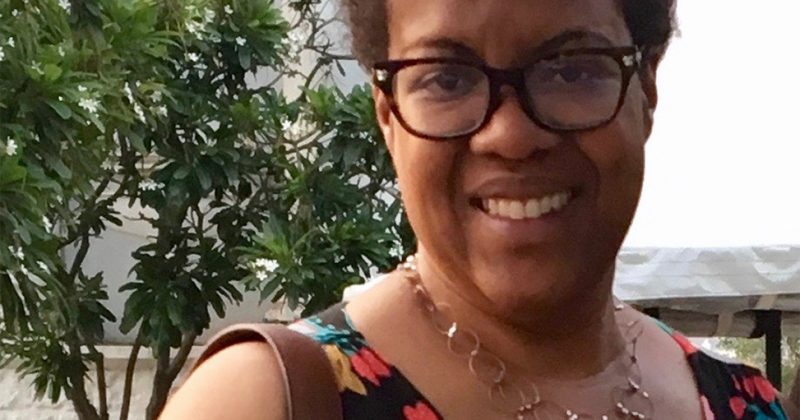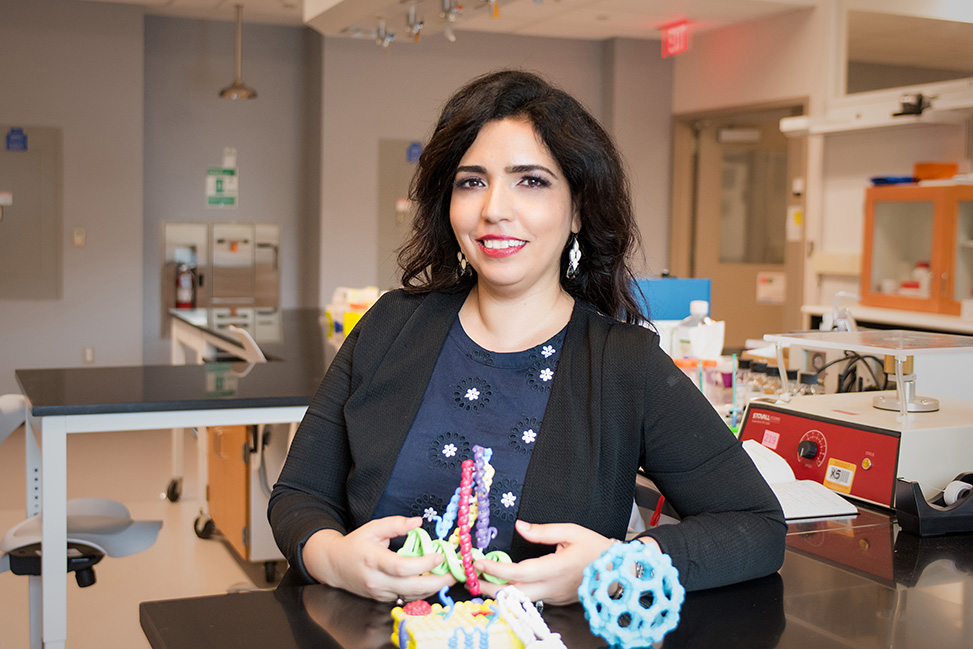
Scientist Ronit Freeman holds a 3D model of a protein her lab in mimicking. (photo by Sarah Daniels)
Ronit Freeman’s research crosses interdisciplinary boundaries and has potential applications in diagnostics, drug delivery and more.
For children and adults with life-threatening respiratory disorders, standard medical protocol often calls for inserting a metal stent into the lungs or airways.
“These devices are durable, but cannot change shape — they are static,” said Ronit Freeman, an associate professor in the department of applied physical sciences.
The human body, of course, is far from static. From respiration of oxygen to generation of new cells, our bodies are in a state of constant, dynamic change. “We want to make materials from biological building blocks that can respond to the body as it grows and changes,” Freeman said. “And if we can use them to deliver cells derived from our own bodies, we’re less likely to reject them.”
Revolutionizing medical stents is just one application of Freeman’s research. The work she is pioneering also contains great potential for disease diagnostics, drug delivery and tissue regeneration. In the lab, Freeman and her colleagues use malleable sets of molecules, often DNA-peptide hybrids, to build biological structures that can support the repair of injured parts of the human body.
Freeman, like her molecules, has always been a master of adaptation.
Born and raised just outside of Tel Aviv, Freeman joined the military when she was 18, a requirement for all Israeli citizens. Always up for a challenge, she decided to pursue additional courses and training to become an army officer — a pivotal experience that shaped both her confidence and leadership skills.
Just a few years later, when she was in her early 20s, Freeman was hit by a car. Her recovery was long and grueling, both physically and mentally. A passionate dancer since the age of 3, Freeman didn’t dance for years after the accident. “As I was going through college and grad school, I really missed it,” she said. “It was like a piece of my soul was not satisfied.”
Although she couldn’t return to ballet, Freeman decided, in the middle of her Ph.D. work, to try ballroom dancing. Within a year she became a semi-professional, attending dance competitions all over the country. She continues to compete (and teach dance) to this day.
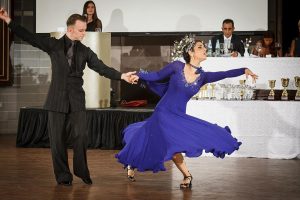
Freeman’s innate resilience has had a profound impact on her career — as a scientist, a teacher and a communicator. She knows that leading by example is critical for connecting with her students. Outside the lab, she finds creative ways to contextualize her research, ensuring that clinicians understand how her materials can potentially be used in the clinic.
“I’m a huge believer in community and investment in people,” she said. “If you want to create a culture of innovation, you have to invest in the people first.” Her research partners include an interdisciplinary mix of chemists, engineers, biologists, nanotechnologists, surgeons and others.
That mentality helped bring Freeman to UNC-Chapel Hill in 2018. After living in big cities all her life (from Tel Aviv to Chicago), she had some hesitation about moving to a small college town in the South. At UNC, however, Freeman has found a strong sense of community and an entrepreneurial environment in the department of applied physical sciences.
“We all have excitement and new ideas, but it can fall on deaf ears if people are not receptive to change,” she said. “Especially when you tell a clinician, ‘I’m going to revolutionize the way you do medicine!’”
Freeman is a fierce advocate for young women who are pursuing careers in science and engineering.
“It’s demanding. It’s long hours. You’re constantly on and that’s challenging regardless of gender and race,” she said. “Being a woman in this field comes with its own challenges, but there are more of us now. Hang in there because it’s worth it.”
By Mary Lide Parker ’10
Published in the Fall 2019 issue | Tar Heels Up Close
Read More
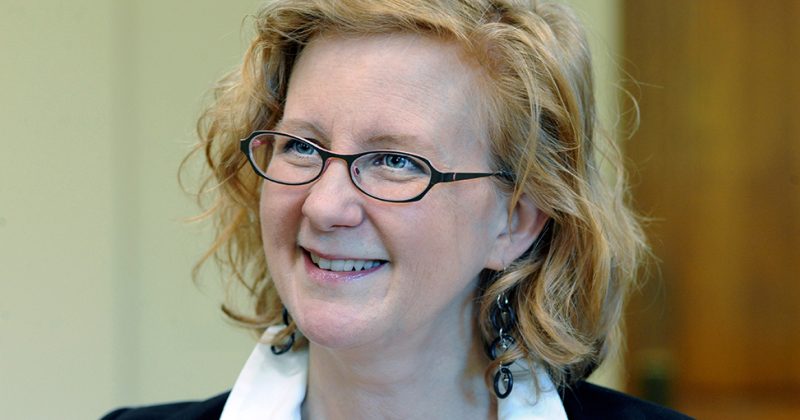
Mellon funding supports environmental humanities
The Andrew W. Mellon Foundation has awarded a $150,000 two-year…
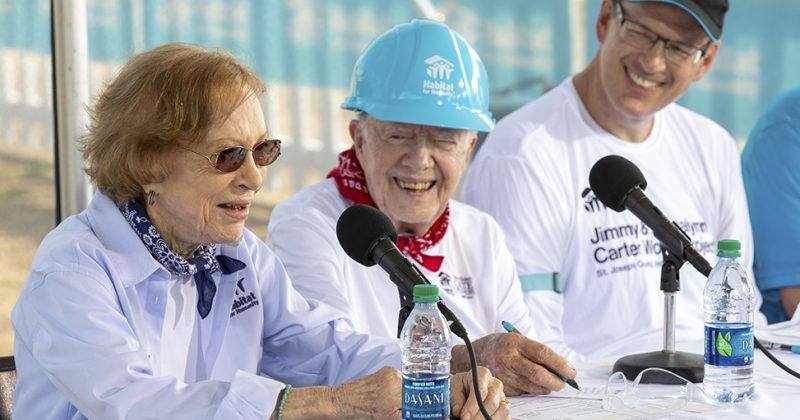
Seven life-changing virtues, from the CEO of Habitat for Humanity
“When the waters rise, so do our better angels,” Jimmy…


